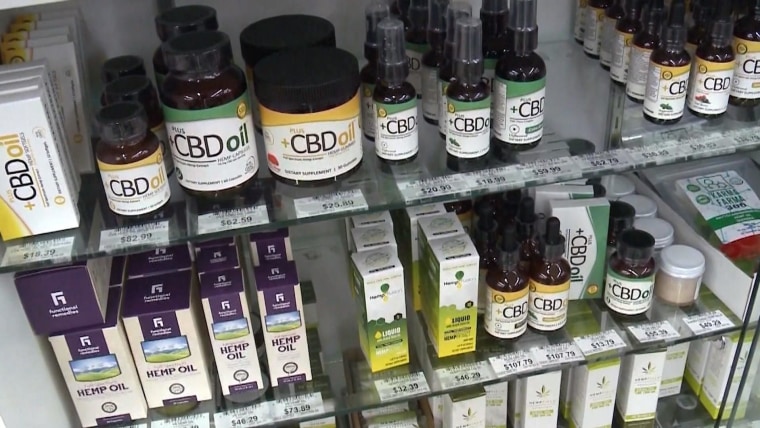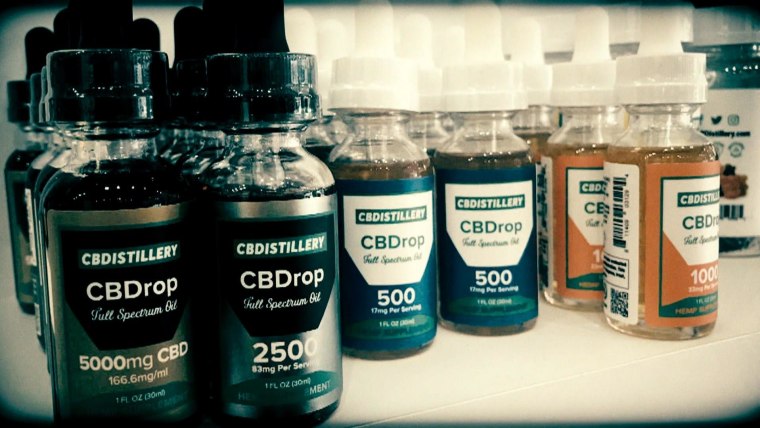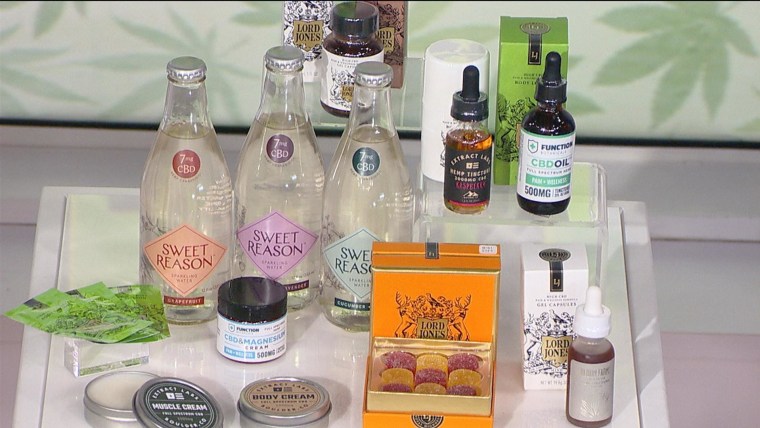What Does Cbd Mean in Medical Terms
What Does Cbd Mean in Medical Terms
CBD is everywhere lately — in skin care, coffee and even pet treats. But is it really all it's hyped up to be?
Advocates say CBD, or cannabidiol, which comes from hemp and marijuana, can help with anxiety, pain relief and provide a slew of other benefits. And while many experts agree that CBD has potential, there are still a lot of unknowns.
Currently the Food and Drug Administration has only approved one CBD product, a prescription drug called Epidiolex to treat two rare forms of epilepsy. In July, the FDA expanded what the drug is approved to treat, saying it can also be used for seizures associated with tuberous sclerosis complex.
Interest continues to grow. Last year, the federal government pledged $3 billion to research CBD.

Celebrities are also getting in on the craze. Martha Stewart recently released a line of CBD wellness products. Rob Gronkowski has one, too.
Here are the basics of what you need to know about CBD and health.
What is CBD?
CBD is the abbreviation for cannabidiol, one of the many cannabinoids, or chemical compounds, found in marijuana and hemp.
You're probably already familiar with tetrahydrocannabinol, or THC, which is another compound found in the cannabis plant and its main psychoactive component. But unlike THC, CBD is not psychoactive. In other words, it's not what gets you stoned. It's also different from medical marijuana, which has been shown to reduce pain.
What does it do?
In addition to treating epilepsy, research has shown CBD may help reduce anxiety for people who have schizophrenia or psychosis, or who are addicted to opiates.
Because of its anti-inflammatory properties, CBD may even help treat acne.
It may also be beneficial for arthritis. Last fall the Arthritis Foundation became the first major health organization to release guidelines for the use of CBD.
Advocates believe there are many potential health benefits, but clinicians say more research needs to be done.

"I do believe that cannabidiol has potential, absolutely," Dr. Yasmin Hurd, a neuroscientist at Mount Sinai Hospital in New York City, told TODAY. Hurd's research suggests CBD can may have positive effects on opioid addicts.
"But you need studies to really be able to give us knowledge about how much CBD each day someone should take for their particular illness, and how it might interact with other medications they take," she said. "That's what you get with a clinical trial."
How do you use CBD?
CBD can be taken orally or applied topically, depending on the product. There are lots of options out there, from gummies and softgels that supposedly ease anxiety to calming bath soaks, creams and oils — and even beer.
Most of the products claim to ease pain and anxiety. But whether or not these products actually contain the amount of CBD they advertise is up for debate, since they're not approved by the FDA.
The FDA has tested various products and found that many didn't have the amount of CBD they had advertised, and has often sent warning letters to companies that make unfounded health claims.
Is CBD safe — or even legal?
The law depends on where you live, and whether the CBD comes from hemp or marijuana. The Farm Bill of 2018 legalized hemp. Marijuana is trickier because the federal government still considers it an illegal drug, although states have their own swiftly changing laws. Some states have legalized recreational use of marijuana, while others have legalized medical marijuana. Still others have introduced CBD-specific legislation.
"This is such a complicated and murky issue," said Dr. Roshini Raj, an associate professor at NYU School of Medicine in New York City. "With this Farm Bill passing, hemp-derived CBD products are legal, technically. However, the FDA still hasn't approved it in food and beverages, so it's still very complicated."

And even if CBD is now easier for people to get their hands on, that doesn't mean it's been thoroughly researched.
"You can go buy CBD from shops, you can buy it online, but for researchers, we can only study CBD from certain sources, and those sources are still quite restricted," Hurd said.
She suggested that people who are buying CBD products be vigilant about researching the companies they're buying from.
"I think just making sure they're legit is important," Hurd said. "There are a lot of unscrupulous companies online and they make it look like they're pharmaceutical companies. But you can't find out who they are."
On the bright side, both Hurd and Raj pointed out that they haven't seen many negative side effects of CBD.
"If you want to try it, that's fine," Raj said. "But as a doctor, would I recommend it as a treatment? Probably not at this time."
Source: https://www.today.com/health/what-cbd-oil-everything-know-about-latest-health-trend-t118055
Posted by: paschketund1953.blogspot.com
0 Response to "What Does Cbd Mean in Medical Terms"
Post a Comment